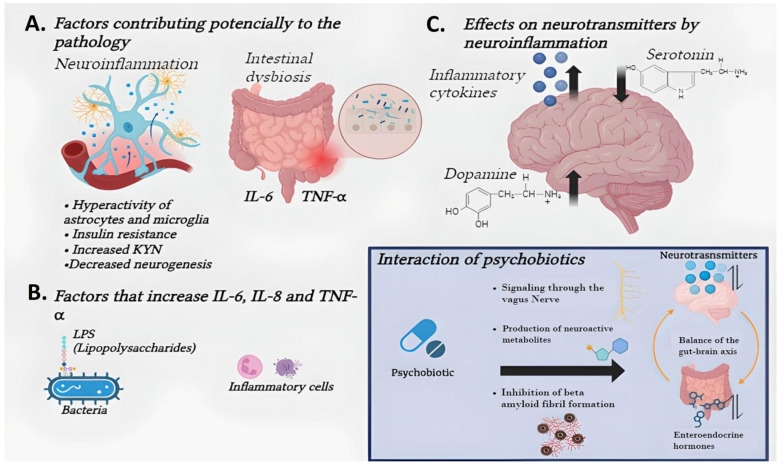Figure 2.
The role of psychobiotics in neuroinflammation in schizophrenia: (A). Factors contributing to potential pathology include the hyperactivity of astrocytes and microglia, increased levels of inflammatory cytokines like IL-6 and TNF-α, and reduced neurogenesis. (B). Contributors to the elevation of cytokines such as IL-6, IL-8, and TNF-α include bacterial lipopolysaccharides (LPS), signaling the involvement of microbial elements in neuroinflammation. (C). Neuroinflammation’s effects on neurotransmitters illustrate how inflammatory cytokines can disrupt the balance of critical neurotransmitters, such as dopamine and serotonin. Thus, the role of psychobiotics extends beyond mere microbiota modulation, as they are instrumental in augmenting neurotransmitter levels, fortifying the integrity of the gut–brain axis, and orchestrating the activity of enteroendocrine hormones. By doing so, they unveil a promising and multifaceted therapeutic avenue for the management of schizophrenia, offering a glimpse into future treatments that harness the symbiotic relationship between our body’s neurological and digestive systems. The figure was created using BioRender (https://www.biorender.com/) (accessed on 1 January 2024).

